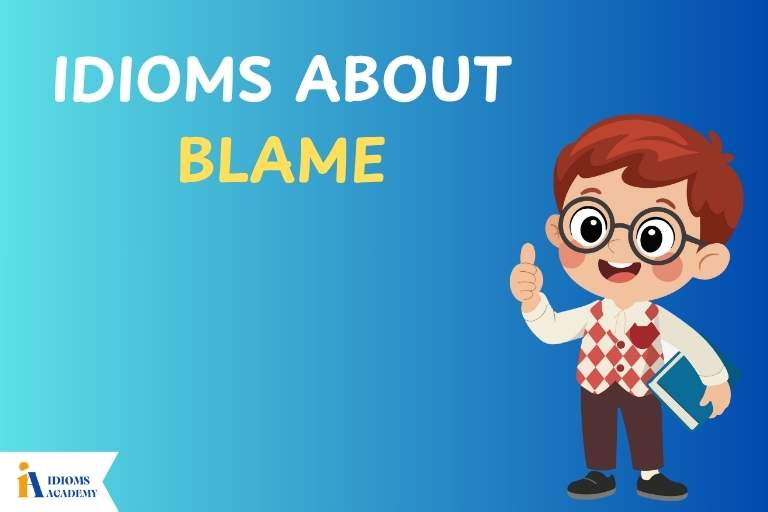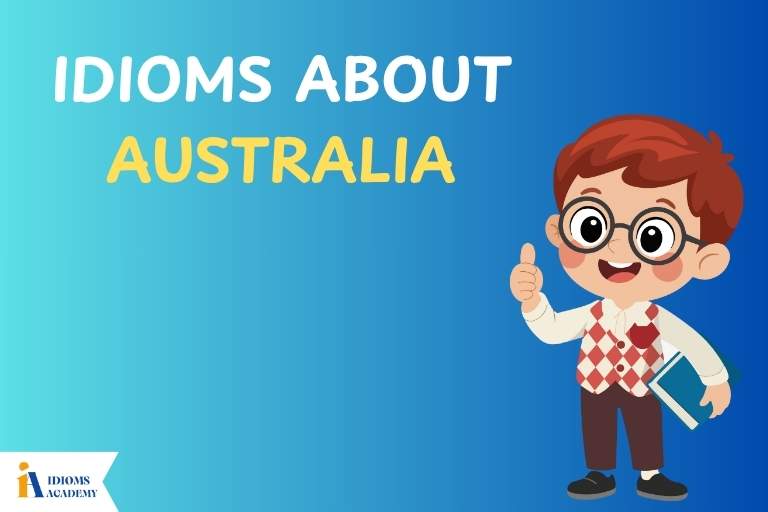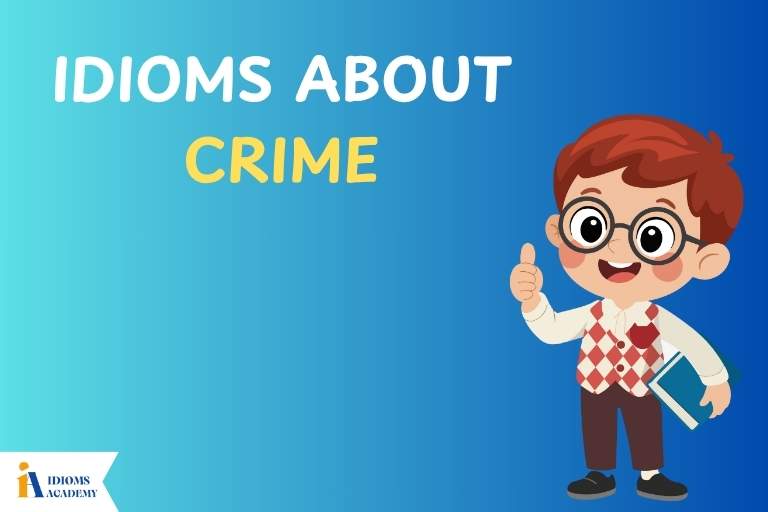Sometimes, we hear short sayings that sound a little funny but have special meanings. These are called idioms. They make talking more fun and help us understand ideas in a smart way. Idioms about two people or things are especially interesting because they show how pairs work together, act alike, or sometimes even cause trouble. These phrases can tell us a lot using just a few words.
In this article, we will explore idioms that use the idea of “two.” You’ll see how people use them when talking about friendships, teams, or problems. Learning these can make your speaking and writing more fun and clear. Let’s take a closer look at some idioms that all have “two” in mind.
Idioms About Two
1. Two peas in a pod
Meaning: Two people who are very similar
Example Sentence:
• My best friend and I are like two peas in a pod.
• The twins dress the same and think the same—they’re two peas in a pod.
Other ways to say: Just alike, very similar
Fun Fact/Origin: Peas grow close together in the same pod, just like close friends.
Usage: Used when talking about two people who do everything the same.
2. It takes two to tango
Meaning: Two people are both responsible for something
Example Sentence:
• Don’t blame only your brother—it takes two to tango.
• They both started the argument. It takes two to tango.
Other ways to say: Both are at fault, both play a part
Fun Fact/Origin: The tango is a dance for two, so both people must take part.
Usage: Used when both people are involved in a situation.
3. Two heads are better than one
Meaning: It’s easier to solve a problem with help
Example Sentence:
• I couldn’t figure it out alone, but two heads are better than one.
• Let’s do this together—two heads are better than one!
Other ways to say: Teamwork helps, work together
Fun Fact/Origin: This idea is very old, even found in books from 1400s England.
Usage: Used when working together is smarter or faster.
4. Caught between two stools
Meaning: Can’t decide between two choices and ends up failing
Example Sentence:
• He wanted to play soccer and baseball but missed both. He was caught between two stools.
• I couldn’t pick a snack or meal and missed lunch.
Other ways to say: Stuck between choices, indecisive
Fun Fact/Origin: This comes from an old saying about missing both seats when you try to sit on two.
Usage: Used when someone tries to do two things but fails both.
5. Have two left feet
Meaning: Not a good dancer
Example Sentence:
• I don’t dance at parties—I have two left feet!
• She tried to follow the moves but looked silly.
Other ways to say: Clumsy at dancing, uncoordinated
Fun Fact/Origin: If someone had two left feet, dancing would be very hard!
Usage: Used when someone dances poorly.
6. A tale of two cities
Meaning: A story with two very different parts or places
Example Sentence:
• Our vacation was a tale of two cities—fun in one, rainy in the other.
• The movie felt like a tale of two cities—half exciting, half slow.
Other ways to say: Mixed experience, two different sides
Fun Fact/Origin: Comes from a famous book by Charles Dickens.
Usage: Used when describing two different experiences.
7. Between two fires
Meaning: Trapped between two dangers or problems
Example Sentence:
• She was between two fires—choosing homework or chores.
• He felt between two fires—his friends were fighting, and he liked both.
Other ways to say: Stuck in the middle, in a tough spot
Fun Fact/Origin: In old battles, soldiers feared being caught between enemies’ weapons.
Usage: Used when someone is stuck in the middle of a problem.
8. Two-faced
Meaning: Someone who acts nice but isn’t honest
Example Sentence:
• Don’t trust him—he’s two-faced.
• She smiled in front of us but said mean things behind our backs.
Other ways to say: Fake, not honest
Fun Fact/Origin: This comes from Roman god Janus, who had two faces.
Usage: Used when someone pretends to be kind but isn’t.
9. Two strikes against you
Meaning: You’ve already made mistakes and are close to failing
Example Sentence:
• He forgot his homework again—two strikes against him.
• If she’s late again, it’ll be three strikes.
Other ways to say: Running out of chances, close to trouble
Fun Fact/Origin: Comes from baseball, where three strikes means you’re out.
Usage: Used when someone is in trouble after two mistakes.
10. In two minds
Meaning: Unsure about what to choose
Example Sentence:
• I’m in two minds about going to the party.
• He’s in two minds about switching schools.
Other ways to say: Unsure, can’t decide
Fun Fact/Origin: This saying means your brain is split on a decision.
Usage: Used when someone can’t make a choice.
11. A horse between two oats
Meaning: Confused between two options
Example Sentence:
• She was like a horse between two oats—she couldn’t pick a toy.
• He stood there, unsure which game to play.
Other ways to say: Stuck choosing, can’t decide
Fun Fact/Origin: Comes from a story about a horse dying because it couldn’t choose between two meals.
Usage: Used when someone is frozen by too many choices.
12. Kill two birds with one stone
Meaning: Solve two problems at once
Example Sentence:
• I did my homework at grandma’s—killed two birds with one stone.
• He cleaned his room while listening to his book report.
Other ways to say: Save time, multitask
Fun Fact/Origin: This old phrase means doing one thing to fix two issues.
Usage: Used when one action solves two problems.
13. Put two and two together
Meaning: Figure something out
Example Sentence:
• I saw his wet coat and muddy shoes, so I put two and two together.
• She saw the gifts and guessed there was a party.
Other ways to say: Solve a mystery, guess the truth
Fun Fact/Origin: Comes from math—adding things to find a clear answer.
Usage: Used when someone understands something by looking at clues.
14. Like two ships passing in the night
Meaning: People who meet briefly and then go separate ways
Example Sentence:
• We only talked for a second—like two ships passing in the night.
• They saw each other once at camp, then never again.
Other ways to say: Brief meeting, quick goodbye
Fun Fact/Origin: Comes from ships that cross paths silently at sea.
Usage: Used when people don’t get much time together.
15. Have one foot in two boats
Meaning: Trying to do two things that don’t go together
Example Sentence:
• He’s trying to play for two teams—one foot in two boats.
• She’s in choir and drama club, but they practice at the same time.
Other ways to say: Split focus, hard to manage
Fun Fact/Origin: From a Chinese saying—standing in two boats is risky.
Usage: Used when someone is trying to be in two places at once.
16. Like two peas in a blender
Meaning: Two people who are too close and always together
Example Sentence:
• They’re like two peas in a blender—never apart!
• The puppies stick together all day.
Other ways to say: Always together, stuck like glue
Fun Fact/Origin: A twist on “two peas in a pod,” but more chaotic!
Usage: Used when people are very close, sometimes in a messy way.
17. In two shakes of a lamb’s tail
Meaning: Very quickly
Example Sentence:
• I’ll be back in two shakes of a lamb’s tail.
• He finished his snack in two shakes.
Other ways to say: In a flash, very fast
Fun Fact/Origin: A lamb’s tail shakes quickly, making it a funny time example.
Usage: Used when something happens fast.
18. Give someone the two-step
Meaning: Trick or avoid someone
Example Sentence:
• He gave me the two-step and ran off with the ball.
• She gave her chores the two-step and left the room.
Other ways to say: Trick, dodge
Fun Fact/Origin: Comes from a dance move—quick steps, quick escape.
Usage: Used when someone avoids something.
19. Speak with a forked tongue
Meaning: Say two different things to trick others
Example Sentence:
• He said he’d help, but he spoke with a forked tongue.
• Don’t trust someone who says two things at once.
Other ways to say: Be dishonest, lie
Fun Fact/Origin: Comes from old stories about snakes having split tongues.
Usage: Used when someone lies or tricks others.
20. A double-edged sword
Meaning: Something with both good and bad sides
Example Sentence:
• Winning early is a double-edged sword—you get less practice.
• Her fame was a double-edged sword.
Other ways to say: Both good and bad, risky reward
Fun Fact/Origin: A sword with two sharp sides can hurt either way.
Usage: Used when something helps but also causes problems.
21. Go in one ear and out the other
Meaning: Someone doesn’t remember or listen
Example Sentence:
• I told him twice, but it went in one ear and out the other.
• Mom’s advice often goes in one ear and out the other.
Other ways to say: Not listening, forget quickly
Fun Fact/Origin: This silly picture means words didn’t stick.
Usage: Used when someone doesn’t pay attention.
22. Be of two minds
Meaning: Can’t choose between ideas
Example Sentence:
• I’m of two minds about going to the sleepover.
• She’s of two minds about joining the club.
Other ways to say: Torn, undecided
Fun Fact/Origin: Like having two brains arguing with each other.
Usage: Used when someone feels unsure.
23. Pull in two directions
Meaning: Feel pressure from two different things
Example Sentence:
• I’m pulled in two directions—help my friend or study?
• She’s pulled in two directions between sports and schoolwork.
Other ways to say: Torn between, stuck in the middle
Fun Fact/Origin: It feels like being tugged by both arms!
Usage: Used when someone feels stressed by choices.
24. Speak out of both sides of your mouth
Meaning: Say opposite things to different people
Example Sentence:
• He told me yes and her no—he’s speaking out of both sides of his mouth.
• Don’t trust someone who says two things.
Other ways to say: Be two-faced, lie
Fun Fact/Origin: Means saying whatever fits, even if it’s not true.
Usage: Used when someone isn’t being honest.
25. Put two and two together and get five
Meaning: Make a wrong guess
Example Sentence:
• He saw me with a gift and guessed wrong—he put two and two together and got five.
• She made the wrong guess from the clues.
Other ways to say: Jump to the wrong idea, get confused
Fun Fact/Origin: A twist on “put two and two together” for a silly mistake.
Usage: Used when someone makes the wrong guess.
26. Feel like two cents
Meaning: Feel small or unimportant
Example Sentence:
• After being ignored, I felt like two cents.
• He called my idea silly—I felt like two cents.
Other ways to say: Feel low, feel left out
Fun Fact/Origin: Two cents is a very small amount, like feeling small.
Usage: Used when someone feels unimportant.
27. Two can play that game
Meaning: I can do the same thing back to you
Example Sentence:
• She ignored me, so I did too. Two can play that game.
• He was teasing me, but two can play that game.
Other ways to say: I’ll do the same, fair play
Fun Fact/Origin: Often used when people respond in the same way.
Usage: Used when someone reacts the same way back.
28. Cut in two
Meaning: Break something or someone apart
Example Sentence:
• The team was cut in two—half went home, half stayed.
• The paper was cut in two for the project.
Other ways to say: Split up, divided
Fun Fact/Origin: A simple way to describe breaking something in half.
Usage: Used when something gets separated.
29. One too many
Meaning: Slightly more than needed; a problem
Example Sentence:
• That extra slice of cake was one too many.
• We brought one too many players to the court.
Other ways to say: Too much, extra
Fun Fact/Origin: Meant for things that push the limit.
Usage: Used when just a little extra causes trouble.
30. Two wrongs don’t make a right
Meaning: Doing something bad doesn’t fix a bad thing
Example Sentence:
• He hit me, but I didn’t hit back. Two wrongs don’t make a right.
• Don’t cheat just because they did.
Other ways to say: Bad + bad ≠ good
Fun Fact/Origin: A lesson often told to children.
Usage: Used to teach good behavior.
31. Have two strings to your bow
Meaning: Have another skill or plan
Example Sentence:
• If soccer doesn’t work, I can draw too—I have two strings to my bow.
• He’s good at both math and art.
Other ways to say: Backup plan, extra talent
Fun Fact/Origin: Bows (like archery) with two strings could still shoot if one broke.
Usage: Used when someone has a second option.
32. Two’s company, three’s a crowd
Meaning: Two people enjoy time alone; a third person feels left out
Example Sentence:
• They were playing together, and I felt like the extra—two’s company, three’s a crowd.
• I didn’t want to bother them.
Other ways to say: Feel like a third wheel, left out
Fun Fact/Origin: From old sayings about dating or friendships.
Usage: Used when two people want to be alone.
33. Go halves
Meaning: Share something equally
Example Sentence:
• Let’s go halves on this pizza.
• They went halves on the gift for mom.
Other ways to say: Share evenly, split it
Fun Fact/Origin: Comes from “half,” meaning 50/50
Usage: Used when people split costs or things fairly.
Quiz: Idioms About Two
Choose the correct answer for each question. There is only one right answer.
Question Key
1. What does “two peas in a pod” mean?
A) Two people who don’t get along
B) Two people who are very similar
C) Two people who live far away
2. If someone says, “It takes two to tango,” what do they mean?
A) Dancing is hard
B) One person caused a problem
C) Two people are both responsible
3. What does “two heads are better than one” mean?
A) More people can solve things easier
B) Too many people spoil the plan
C) One person should lead
4. What does “have two left feet” mean?
A) Someone walks funny
B) Someone isn’t good at dancing
C) Someone likes dancing a lot
5. What does “kill two birds with one stone” mean?
A) Solve two problems at once
B) Hurt two animals
C) Do something twice
6. If someone says, “I’m in two minds,” what do they mean?
A) They have two brains
B) They are very sure about something
C) They can’t decide
7. What does “speak with a forked tongue” mean?
A) Say two things at the same time
B) Lie or say untrue things
C) Use big words
8. What does “two strikes against you” mean?
A) You’re winning
B) You’re doing well
C) You’ve already made mistakes
9. What does “two can play that game” mean?
A) Two people are playing nicely
B) Someone is getting even
C) People are making rules
10. What does “put two and two together” mean?
A) Add numbers
B) Solve a problem by thinking
C) Talk to two people
11. What does “two’s company, three’s a crowd” mean?
A) More people are fun
B) A third person may feel left out
C) It’s fun to have a group
12. What does “go halves” mean?
A) Keep everything
B) Share something evenly
C) Divide something unfairly
Answer Key
- B – Two people who are very similar
- C – Two people are both responsible
- A – More people can solve things easier
- B – Someone isn’t good at dancing
- A – Solve two problems at once
- C – They can’t decide
- B – Lie or say untrue things
- C – You’ve already made mistakes
- B – Someone is getting even
- B – Solve a problem by thinking
- B – A third person may feel left out
- B – Share something evenly
Wrapping Up
Idioms about “two” help us talk about teamwork, choices, and how people act together. These phrases can make language more fun and help explain feelings in simple ways. From sharing ideas to working as a pair, each idiom shows how two people or things can be alike, connected, or even cause trouble.
Now that you know these idioms, try using them when you talk or write. They can help you say more with fewer words, and that’s a smart way to communicate.




